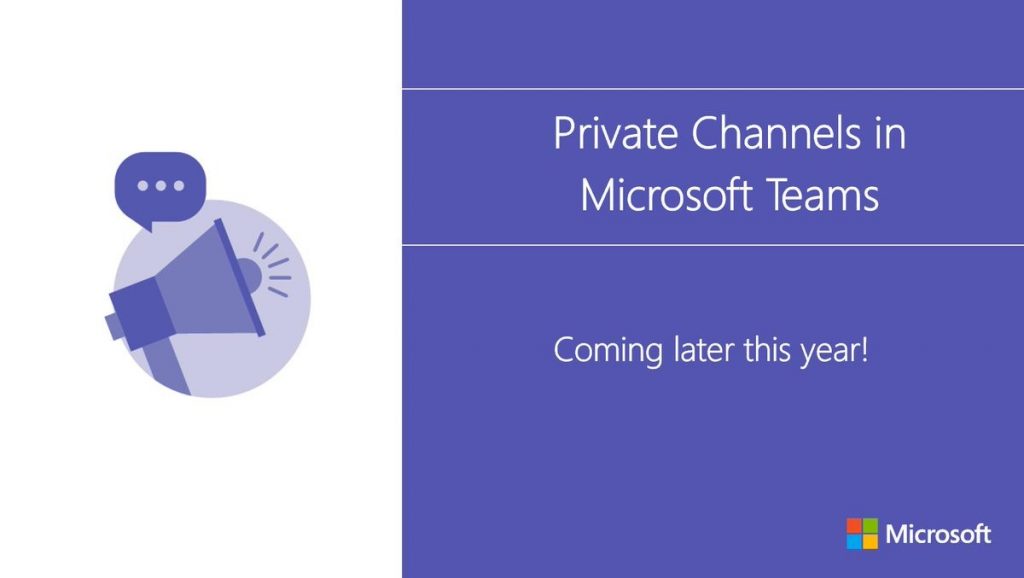There has been an update! Get the latest on when, why and how to deploy private channels across your organization by reading Getting Ready for Private Channels in Microsoft Teams: Part 1.
The discussion of including private channels in Microsoft Teams has been a long one. The concept sounds straightforward enough; private channels would only be seen and accessible by the creator and whoever he/she invites. In practice, however, the feature has been a major development challenge. Here’s what you need to know.
Facts:
- Private channels are easily the most requested feature on User Voice
- The feature has been in development for over two years now
- On March 19th it was announced that private channels will be coming out later this year

According to User Voice, people generally want more options when it comes to creating channels in Microsoft Teams. Specifically, they want channels that are:
- Public-Open (Visible anywhere including outside the organization that anyone can join)
- Public-Invitation (Visible anywhere including outside the organization; must be invited)
- Company-Open (Only visible inside the organization and anyone inside can join; those outside the organization must be invited)
- Company-Invitation (Only visible inside the organization, must be invited)
- Secret (Invisible to everyone except existing members, must be invited)
Why People Want It
So, what’s so special about private channels, anyway? Why’s the demand so high?
Well, private channels would enable admins to have more granular control over who can and can’t access certain content. Sensitive material could be more easily gated. Having private channels would also make something like a manager/executive-only chat within a Team possible.
This is a good breakdown of the private channels in MS Teams situation: Click To TweetWhy People Don’t Want It
Microsoft Teams is all about open collaboration. It was designed to make working with others as seamless as possible. Once you’re in a Team you have access to everything in there. By implementing more controls and requiring the team owner to manage permissions for every private team that gets created, it can quickly become antithetical to the purpose of the platform.
Pushing for private channels can also be seen as unnecessary. You can arguably just create a new team if you want privacy. And if you want a private chat between two or more managers/executives, why not create a regular group chat? These are all workable (though not necessarily as convenient) options.
Potential Issues
Whether you’re for or against private channels in Microsoft Teams, they’re undeniably a popular request. So why have they taken so long to be implemented?
Well, as previously mentioned, channels in Teams weren’t originally created to be blocked off. Because of this, the architecture of channels doesn’t lend itself to being private.

Every Team that’s created is enabled by other facets of Office 365. For instance, Teams need Planner for task management and SharePoint for file storage. If a certain channel in a Team went private…
…Planner permissions would be broken.
…SharePoint permissions would be broken.
…Stream permissions would be broken.
…Tab level permissions would be broken.
Needless to say, the Microsoft Teams team had to overcome a ton of obstacles to make part of their open collaboration platform closed off. Were all the delays worth it? We’ll have to wait until the end of the year to find out.
See how you can manage your private channels with AvePoint’s Microsoft Teams management solution!
Feel free to comment below and let us know how you think private channels will impact Microsoft Teams going forward!
There has been an update! Get the latest on when, why and how to deploy private channels across your organization by reading Getting Ready for Private Channels in Microsoft Teams: Part 1.

